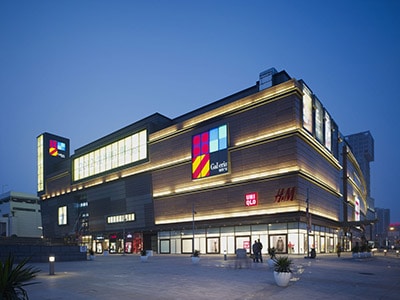
John Saunders, Managing Director of BlackRock Asset Management North Asia
While many US-based fund managers are shunning China in favor of other Asian locations, Blackrock is said to be shopping for office towers and even retail assets on the mainland.
The New York-based investment management firm, which currently is the world’s largest asset manager with over $4.5 trillion under management, is said to be shopping for acquisitions in China’s first and second tier cities, according to a story today in the Wall Street Journal.
The Journal account, which is based on an interview with Blackrock’s APAC head John Saunders, comes just a few weeks after a study by industry group the Urban Land Institute found that property professionals in the region were ranking locations such as Ho Chi Minh City and Manila over any city in China as investment destinations.
Blackrock Calls a Market Bottom
“Generally there are investor concerns on where China’s economic cycle is at, near the bottom, or halfway down from the top. We think it’s near the bottom,” Saunders told the Journal in the interview.
Growth in investment in China’s real estate sector slowed to 1.3 percent over the first 11 months of 2015, compared to the same period last year, according to figures released this month by the National Bureau of Statistics.
While the slowdown in investment, coupled with growing uncertainty over exchange rates and lingering fears after a summertime stock market slump has scared off many investors from Europe and North America, buyers from within the region have continued to snap up mainland assets.

Blackrock already owns the Galleria mall in Chengdu
During recent months Hong Kong-listed Yuexiu REIT bought an office tower in Shanghai’s Pudong district from private equity firms Carlyle Group and CLSA Capital Partners for RMB 2.63 billion ($423 million), while developer Shui On Land has brought in more than RMB 12.3 billion ($1.9 billion) from record breaking sales of prime office properties in central Shanghai to Hong Kong’s Link REIT and corporate investor Lee Kum Kee Group.
These investments in mainland assets run contrary to the stated preferences of members of the Urban Land Institute who were polled for the group’s 2015 survey of top investment destinations. According to the people surveyed by the US-based organisation, cities in Japan and Australia dominated the top five investment targets this year, with even developing markets such as Ho Chi Minh City (#5 on their list) and Manila (ranked #8) placing above any locations in China. Shanghai, which ranked ninth, was the top mainland destination.
Despite the skepticism among the survey respondents, Blackrock says that it is eyeing opportunities in office space in China’s first and second-tier cities, and malls in the second-tier communities, according to the Journal account.
“For a period in time we didn’t do a lot in China, because the pricing didn’t seem conducive for us to make returns, whilst underwriting reasonable levels of growth. Now that picture has changed and China has become our key market for sure. It has been softening for the past 18 to 24 months,” Saunders was quoted as saying by Reuters.
This interest is apparently not deterred by China’s declining growth in top GDP figures. In Blackrock’s favor are other numbers, such as office rentals, where rates in the country’s top tier cities have continued to climb as the service sector expands and more domestic firms move into modern offices.
Institutional Investors Agree with Stock Call
In October Blackrock’s head of China equities Helen Zhu came out in favor of the country’s property stocks just before many of the top developers saw their share prices surge.
“Most people hate Chinese property. We’re putting our neck out there and saying, you know what, it’s all in the price, and in fact the delta of change is very positive,” Zhu said in an interview at the time. During the past several months, the housing market in China’s top tier cities has emerged from a year-long slump with prices and transaction volumes on the rebound.
Since then, mainland institutional investors in particular have been upping their bets on the property sector with Anbang Insurance spending more than $426 million this month to acquire a 30 percent stake in developer Sino-Ocean, and Shenzhen-based Jushenghua has also spent hundreds of millions to acquire a 20 percent stake in China Vanke.
The result of these deals, and of the nascent housing market recovery, has been a more than 35 percent rise in China Vanke’s stock price over the last three months. During the same period, Sino-Ocean’s shares are up by 19.9 percent, while Evergrande Real Estate has seen its stock price surge by more than 28 percent.
Leave a Reply